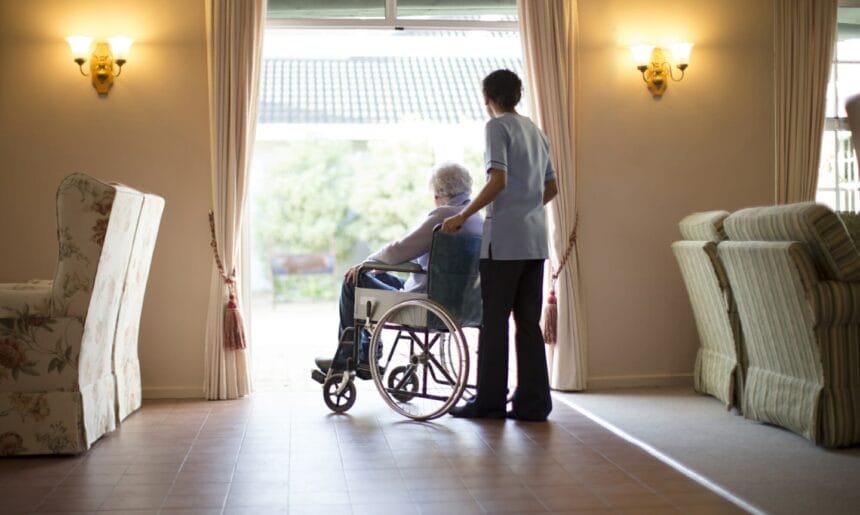
Direct care workers remain undervalued in long-term care, according to a new report from PHI that calls for training and career advancement opportunities.
“Direct Care Work Is Real Work: Elevating the Role of the Direct Care Worker” is the third report in a year-long series that provides analysis of the direct care workforce and its critical role in the long-term care system. The report was put out by PHI, with support from the W.K. Kellogg Foundation and the Woodcock Foundation.
The system, according to the report, fails to adequately prepare direct care workers to succeed and threatens quality of care for older adults and people with disabilities. Training requirements tend to focus on tasks associated with assisting residents with activities of daily living, failing to capture the complexity and scope of the work.
“Whether direct care workers are helping people move safely throughout their day, offering emotional support, or managing complex conditions such as Alzheimer’s disease, there is considerable skill involved in what they do,” said Angelina Drake, PHI chief operating officer and report author. “We must improve training to better match the demands placed on these workers in the field, incorporate them as valued members of interdisciplinary care teams, and create opportunities for career advancement in direct care.”
Training requirements for direct care workers in residential care settings vary, according to the report, because such settings — including assisted living communities — are regulated at the state level, for the most part. All but three states require some form of entry-level training for residential care aides working in assisted living communities, according to the report, and in most cases these requirements are limited to an orientation on a uniform set of topics.
Only 17 states and Washington, D.C., require a minimum number of entry-level training hours — which can range from one to 90 hours — for residential care aides in assisted living. Thirty-eight states require some form of continuing education. Direct care workers supporting residents with distinct needs within residential care communities, including residents with dementia, often are required to complete additional training, as are workers approved to administer medication in these settings.
“With demand for this occupation driving the majority of job growth in long-term care, strengthening training standards for personal care aides has been identified as an important factor in meeting consumer need for LTSS in the coming decades,” the report states.
The challenges facing direct care workers have become heightened during the COVID-19 pandemic, according to PHI. The physical nature of the job precludes direct care workers from social distancing requirements, placing them at considerable health risk.
“The in-person nature of direct care work — in addition to the precarity created by its low wages, lack of paid leave and limited training — placed personal care aides, home health aides and nursing assistants among the workforces facing the highest risk due to coronavirus,” the report states.
The report suggests that a national standard for direct care training competencies should be developed, with requirements for states to adopt core competencies across direct care roles. A competency-based approach focused on successful demonstration of key skills — rather than the number of hours spent receiving instruction — is key to improving worker skill sets and job satisfaction, the report states.
“Right now, there is no consistent standard,” Drake told McKnight’s Senior Living. “There are no common competencies to deliver quality care in this field. Requiring those competencies is a significant step up for this field to ensure some consistency in the quality of care being delivered and really drive home what’s important.”
Low training standards, she said, have a “nefarious effect” on the field, contributing to the “perception of academic deficiency in the work as unskilled or low skilled,” when it merely relates to low training standards.
“It’s harmful perception and contributes to workers feeling disrespected, underpaid and underappreciated,” Drake said. “[Competency standards] help recognize the importance of this work, the complexity, and, I hope, can help allow it to be recognized as skilled work.”
The next report in the series will examine all aspects of the jobs held by nursing assistants, home health aides and personal care aides and provide strategies to improve job quality.


